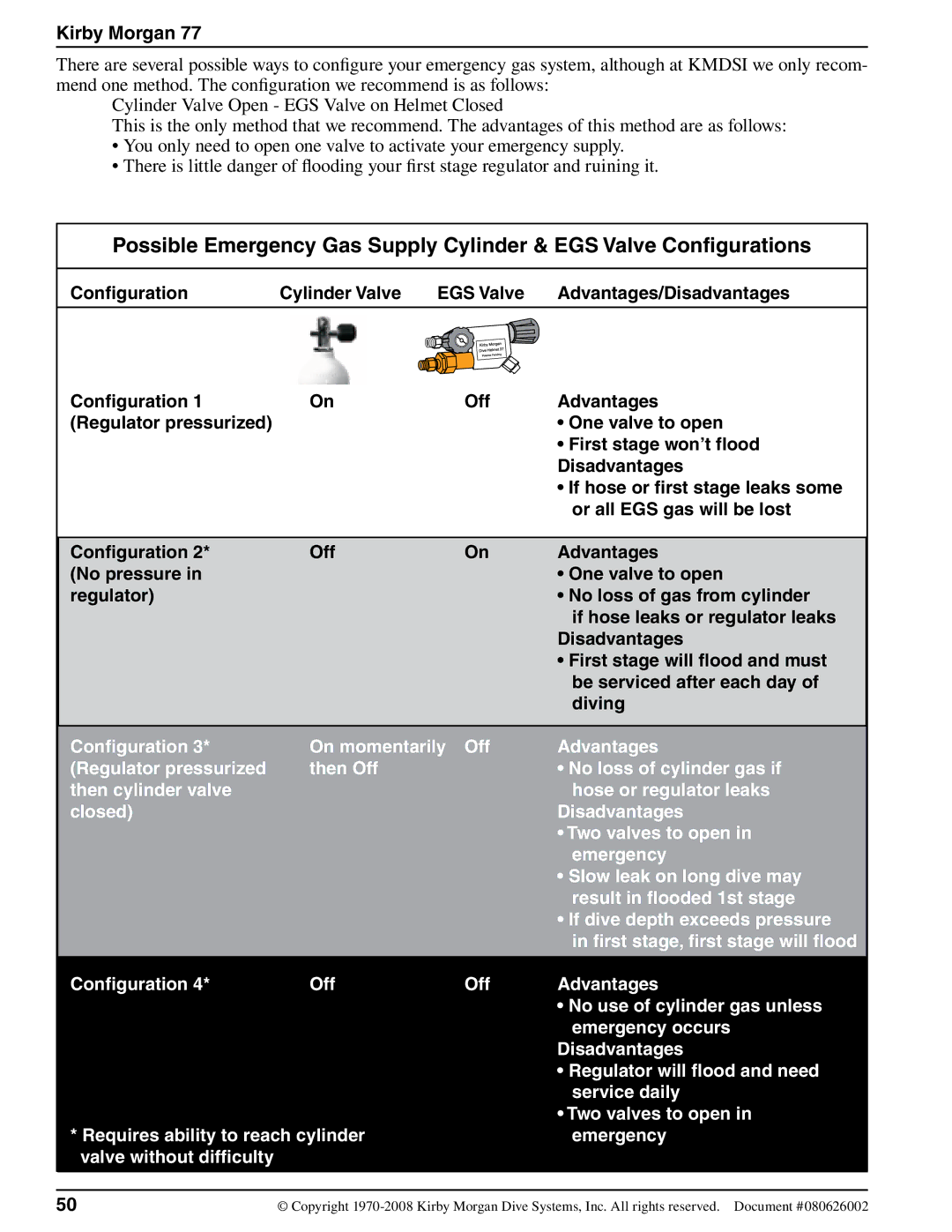
Kirby Morgan 77
There are several possible ways to configure your emergency gas system, although at KMDSI we only recom- mend one method. The configuration we recommend is as follows:
Cylinder Valve Open - EGS Valve on Helmet Closed
This is the only method that we recommend. The advantages of this method are as follows:
•You only need to open one valve to activate your emergency supply.
•There is little danger of flooding your first stage regulator and ruining it.
Possible Emergency Gas Supply Cylinder & EGS Valve Configurations
Configuration | Cylinder Valve | EGS Valve | Advantages/Disadvantages |
Configuration 1 | On | Off | Advantages | |
(Regulator pressurized) |
|
| • One valve to open | |
|
|
| • First stage won’t flood | |
|
|
| Disadvantages | |
|
|
| • If hose or first stage leaks some | |
|
|
| or all EGS gas will be lost | |
|
|
|
| |
Configuration 2* | Off | On | Advantages | |
(No pressure in |
|
| • One valve to open | |
regulator) |
|
| • No loss of gas from cylinder | |
|
|
| if hose leaks or regulator leaks | |
|
|
| Disadvantages | |
|
|
| • First stage will flood and must | |
|
|
| be serviced after each day of | |
|
|
| diving | |
|
|
|
| |
|
|
|
| |
Configuration 3* | On momentarily | Off | Advantages | |
(Regulator pressurized | then Off |
| • No loss of cylinder gas if | |
then cylinder valve |
|
| hose or regulator leaks | |
closed) |
|
| Disadvantages | |
|
|
| • Two valves to open in | |
|
|
| emergency | |
|
|
| • Slow leak on long dive may | |
|
|
| result in flooded 1st stage | |
|
|
| • If dive depth exceeds pressure | |
|
|
| in first stage, first stage will flood | |
|
|
|
| |
Configuration 4* | Off | Off | Advantages | |
|
|
| • No use of cylinder gas unless | |
|
|
| emergency occurs | |
|
|
| Disadvantages | |
|
|
| • Regulator will flood and need | |
|
|
| service daily | |
|
|
| • Two valves to open in | |
* Requires ability to reach cylinder |
| emergency | ||
valve without difficulty |
|
|
| |
|
|
|
| |
50 | © Copyright |
